|
As a professional paving company in North Texas, we run across folks who are unhappy with the quality they've received on their driveways. Some think they've been scammed. Sometimes they have and sometimes not so much. Either way, the threat of being scammed these days doesn't feel good at all so here's a post that discusses it in more detail.
Being scammed is something we all live with the possibility of today. We know it can happen in pretty much any endeavor we take on in our daily lives. Still, we've all become accustomed to taking calculated risks with our online shopping, the payments we make, the contracts we sign, and the passwords we put on our computers just to name a few. Today, everyone does some due diligence, but eventually we have to make a decision to move forward. You don't want deferred maintenance... When it comes to driveway paving, putting it off because of fear is actually costing you far more than you think. The small puddle turns into alligator cracks and before you know it, expensive repairs are necessary to remove and replace damaged asphalt. The point is, it's not good to wait as deferred maintenance costs many times more than regular maintenance. Still, the buying process can be a challenge. How do you know you're getting a fair price? How do you know the work will be completed on time, and on budget? Honestly, it can be hard to know, unless you have some honest discussions with the companies your getting bids from, references, or other experts that you can rely on. You should still be getting multiple bids on any home improvement project as experts recommend. The trick is to avoid being scammed or getting shoddy work that you've paid full price for. What does not constitute a scam? It seems that most of the time, when we talk to disappointed homeowners in Texas, they haven't been scammed at all. There are usually underlying issues involved. Here are a few to consider... Underlying Water issues: An example would be a paving company that points out that a homeowner needs a culvert and the homeowner doesn't want to pay for one. They pave without it and as a result water rushes over and under the driveway eroding it prematurely. This is not a scam because the paving company did what they were contracted to do, despite telling the homeowner what they did actually need. Underlying base issues: Another example would be an asphalt overlay that cracks. Here in Texas we have very bad soil conditions and the weather takes a mighty toll on paving of all types here. When a newer asphalt overlay cracks, the cause is most likely due to the underlying base or dirt. This would not constitute a scam because to remove the existing asphalt can be very costly for homeowners and few are willing to take on the financial burden of removing an entire driveway to start from scratch. This isn't a scam unless the overlay was wafer thin throughout. A good company would come see what happened, but in the case of a paving scam they very likely wouldn't. Heavy Vehicle Traffic: When a dump truck, trash truck (especially one with one rear axle), or other heavy trucks and trailers drive on a driveway, the weight can damage the asphalt. This is especially true in the period of time before the asphalt is cured. Asphalt companies will ask you not to drive on a new driveway right away, and no heavy traffic should be allowed on it before it has time to cure. If asphalt is bending and breaking, it may not be the overlay or driveway, but rather the commercial traffic driving on it. This would not be a scam, but a good company could help you out and look at the damage and potentially fix it for you. A scammer wouldn't be reached for comment. "Weeds and water go where they want." If a company puts in asphalt and some grass or weeds make it through it's not necessarily a scam, but it can also be a tell-tale sign. Here in Texas, grass and weeds are pretty veracious, and they can make some asphalt seem like it was put on thin even when it wasn't. Additionally, a paving company with a good reputation could put in a driveway that inadvertently has a small area with thinner asphalt than it should, but a paving scam would involve a very thin layer throughout. If a paving company falls short in a small area and a few weeds poke through it would be more appropriate to categorize it as an isolated defect of workmanship and the company should be willing to remedy it. On the other hand, if numerous patches of thick grass and weeds grow though more consistently across the driveway, it is likely a scam, especially if the company will not be willing to make good on it. Remember... A quality paving company should be putting at least 2-3 inches of asphalt on top of a firm base and any weeds or grass that eventually make it through would be more sparse. A scam would involve very thin pavement throughout. A good company will address issues, a scammer wouldn't. What may be a paving scam? The best way to explain a paving scam is that it would be a combination of factors including a high-pressure sale where the company may say they have extra asphalt from another job or something and have to do the work immediately. This alone could be fine, but the scam part is that the price is high, and the quality of work low. In our book, that would constitute a scam - shoddy work for high dollars. Here are signs to look for that may lead to a driveway you're not proud of: • High-pressure sales • Unmarked trucks • Something is too-good-to-be-true • No written estimates • Door-to-door sales • Leftover product • Out-of-state plates or phone • Company doesn't pull up in Google • Company has high percentage of bad reviews • Not a company in good standing with the state Here are a few things you can do to get a quality paving contractor: • Check references or past work examples • Get multiple bids • Use a site such as HomeAdvisor to ensure contractors have passed a background check • Get a clear explanation of the work being bid • Let contractor know exactly what you're expecting • Get recommendations from the neighborhood sites you are a member of and check out their driveways. Hope that helps! Keep in mind, the vast majority of problems with paving and driveways in Texas isn't the result of a scammer, but is more often attributable to the existing driveway, the underlying road base, water issues or other factors that Texas has its fair share of that are cost prohibitive or not approved by the homeowner. Although there is no real way to officially warranty paving due to the water and soil issues here, a good company will stand behind their work and value their reputation. When they won't stand behind their work, don't have or don't care about their reputation, and also do work that is suspect, that's when things get scammy. Comments are open so you can leave your thoughts, too. County websites in our area: Collin County Culvert Forms & Permits http://www.collincountytx.gov/development_services/Pages/culvert_forms.aspx Denton County Culvert Noms & Permits https://dentoncounty.com/Departments/Public-Works-Planning/Applications-and-Permits.aspx Grayson County Culvert Forms & Permits http://www.co.grayson.tx.us/default.aspx?name=tre.payment_culverts When determining who should handle your driveway culvert maintenance, the key is knowing who owns and is responsible for the land on which the culvert is located as is laid out in the town or county’s government policies. Many people avoid researching such policies because they don’t want to deal with all that legal jargon. However, this article equips you with the information you need to navigate government resources concerning culverts. First of all, it will be helpful to familiarize yourself with some key terms concerning culverts and drainage policy:
Now that you are familiar with the key terminology surrounding culvert maintenance policies, it’s time to find the correct city or county department to contact. Usually, the information you’re looking for can be found by contacting the government department in charge of road regulations. A good place to start is your county’s government website. This can usually be found by using an online search engine to search the name of your county followed by 'official website'. In the search results, the website you’re looking for will usually be one of the top results. It should also plainly state the county’s name. For example, when I searched 'Randall County, TX official website' the county’s government website, www.randallcounty.com, was the first to pop up. Once you’re on your county website’s main page, you will usually see a 'Departments' tab or something similar. Click this tab and scroll down until you find the department title related to roads, streets, or drainage governance. The exact name of this department will vary county to county, but it should be pretty easy to spot. On Randall County’s website, the proper department can be found under 'Road & Bridge'. Once you’re on the correct department page, you’ll usually see the names of government officials as well as their contact information. The fastest way to get your questions answered is to call them directly (it’s up to you whether you want to call the head of the department or other available contacts on the list). However, you may also send an email if you prefer. When speaking with (or emailing) a representative from the department, there are a couple of questions you should ask right away. First of all, confirm that you’ve found the correct department by asking them if they are responsible for upholding regulations surrounding culverts. If they are not, ask them to transfer you to the correct department or, at the very least, get the name and contact information for the department you need to call. Once you have confirmed that you are talking to someone who can help you, tell them about your situation and why you want to know who is responsible for culverts in your area. Whomever you talk to will probably want to know your address as well as if you own the property in question, as regulations usually vary depending on who owns the property as well as the property’s location (township, county, subdivision, etc.). They may also ask if you know of any drainage easements on or near your property. Additionally, you should let them know if your culvert’s malfunction has damaged anything on your, your neighbors’, or government property. With this information, the government representative should be able to answer your questions or direct you to someone who can. Even when you have your answer, it doesn’t hurt to do some independent research to confirm what you’ve been told. This involves using a search engine or public files (usually obtainable at a courthouse or other location of public records) involving land development/drainage codes, policies, and regulations. On the Randall County Road & Bridge Department webpage, this information is readily available. It can be downloaded as a PDF via the Road & Subdivision Policy link, found under 'Information' in the page’s left column. If your county’s website isn’t as straightforward, you can politely ask the department representative with whom you speak to direct you to where the policy can be found. There should be no reason they cannot do this. However, if for some reason they can’t help you, you should be able to find the information online by searching the name of your county, plus “culvert policy” or something similar. If possible, find the original policy scanned online as a PDF. Use the Table of Contents to find the section related to culverts and drainage, and read through it. This will help you feel more informed as you move forward in repairing or replacing your faulty culvert. Sometimes, the terminology used in the policy can be pretty convoluted or dull. However, stick with it, and use the key terms from this article to help you. The policy will usually describe who is responsible for different types of properties and culverts, as well as the permits and other steps one should take in order to comply with regulations. In our Randall County example, if the culvert is located on private property, the owner of that property is responsible for the culvert’s upkeep. If a culvert is located in a subdivision, the subdivision developer is responsible for maintaining culverts and must do so in keeping with the city’s code. Meanwhile, culverts on public land are the responsibility of the government. According to Randall County Law and Ordinances, inspectors are required to check all culverts on public land once a year. Additionally, if someone notices a problem with culverts on public land, they should contact Law and Ordinances to resolve it. These are some fairly common regulations. However, every county’s laws are slightly different, and loopholes abound, so do your best to get the information specific to where you live. Best of luck!
Driveway Seal Coat Information, How to, and Pro's and Con's. Many homeowners wonder whether or not it’s worth it to get a seal coat (also called sealcoating, sealcoat or sealant) for their asphalt and concrete driveways. Sealcoat may seem like an extra expense. However, experts agree that proper application of seal coat is a fundamental component of driveway surface protection. The average life expectancy of a paved driveway is about 15 years. However, high quality and timely sealcoating and crack repair may as much as double the lifespan of a driveway! What is sealcoat? Sealcoat is a thin layer of material applied to finished asphalt or cement surfaces. It is made of either coal tar pitch or asphalt cement combined with fillers, water, emulsifiers, and other additives. Seal coats can be purchased at most hardware stores or from driveway servicing providers, who usually have their own custom formulas. Professionals use large tanks of premium tar instead of buckets sold in stores. Sealcoats are applied to protect driveways from damage caused by gasoline and oils, salt, water, and UV rays. Additionally, sealcoats improve the appearance of asphalt driveways, in particular, by hiding discoloration (usually caused by pavement oxidization over time) under a neat black finish. The most notable benefit is sealing small cracks and fissures so that water cannot easily penetrate through, which can cause more serious cracking and erosion of the top layer of driveway asphalt. Larger cracks can be filled with hot rubber which repairs deep cracks and prevents small cracks from growing into larger ones. What are the benefits of a sealcoat? In addition to improving a driveway’s appearance by giving it a uniform color and texture, good sealcoats slow oxidation by filling the small spaces between particles on the driveway’s surface. This keeps oxygen and the sun’s rays, as well as oil, gas, and other destructive elements, from sinking into the pavement’s surface. Similarly, sealcoat protects from water damage, in which water soaks into and enlarges existing cracks, particularly in areas where temperatures fluctuate between thaws and freezing. How often should I apply sealcoat? Most experts recommend applying new sealcoat every two to three years, depending on extreme weather and heavy traffic. When should I apply sealcoat? Before applying sealcoat to a paved surface, you may need to repair any damage, such as potholes or alligator cracks, existing in the driveway’s surface. This is particularly important if the cracks go through to previous asphalt layers or all the way to the dirt below. Remember, sealcoat is a protective layer. It is not meant to repair structural problems in your driveway. Experts differ in opinion on how long you should wait to seal your driveway after finishing repairs. Some claim you should wait six to twelve months, while others say you only have to wait four to eight weeks. Your best bet is to check the instructions on the sealcoat you purchased or ask the professional you bought it from for advice about that particular formula or ask your paving expert. Waiting the proper amount of time before applying sealcoat is necessary in order to let all areas repaired with hot mix to properly harden and fuse with the surrounding surface. How do I apply sealcoat? Because sealcoat is water-soluble, it should be applied at a time when there will be no rain for at least 48 hours. Beware of lawn sprinklers as well, as they can interfere with proper sealcoat application if used 48 hours before or after the sealcoat is applied. Additionally, choose a time of year where extreme temperatures will not affect the sealcoat’s ability to dry and cure properly. Good conditions are usually thought to be when the temperature is in the range of 60 degrees Fahrenheit. Sunny weather is ideal, as sunlight helps the sealcoat cure faster. When can I drive on it? Driving over a drying sealcoat should also be avoided when possible, but even thought the material would not be cured, in hot and dry weather, sealcoat may be dry enough to drive on in as little as 30 minutes after application. In most cases, it is recommended to stay off a recently seal coated driveway for a full day if possible. How can I apply sealcoat DIY style? To apply sealcoat, you will need mixed sealcoat (check the instructions for mixing on the sealcoat you buy, as how to prepare the material varies by product), as well as an asphalt squeegee, gloves, a face mask, and protective eyewear. You may want one of the white protective suits as well to avoid ruining clothes and to avoid the irritation that can occur with exposure to the product. You may also want to bring along an old paintbrush to get those tricky edges and corners. After ensuring that your driveway is clean (you can use a broom or leaf blower, but be cautious with pressure washers, as your driveway must be completely dry before you can apply sealcoat), retrieve your prepared sealcoat. Working from the top of your driveway, pour the sealcoat in a straight line in front of where you will be spreading it, and use your squeegee to smooth it evenly over the driveway. For edges and hard to reach corners, use the paintbrush. Make sure you exert enough pressure on the squeegee to spread the sealcoat thinly, but not so much that it oozes over the squeegee’s edge. When finished, allow 48 hours for the sealcoat to dry and cure. You can apply a second coat if desired (and if recommended in the instructions). A note about oversealing: If you use sealcoat too often, it can cause more harm than good. Oversealed driveways develop cracks in the layer of sealcoat (thought not in the asphalt beneath). These cracks look unsightly and can run pretty deep. Remember, your driveway doesn’t need new sealcoat more often than once every two years. Save yourself the time and money, and just wait until it’s necessary. How do the professionals do it? The biggest difference between DIY sealcoating and professional sealcoating is that professionals use spray tanks. Edges are still done the same way, but large areas are evenly coated with a large tank that feeds a high pressure spray wand. Professionals also generally fill deep cracks with hot rubber that is not commonly available to DIY'ers. Concrete Driveways The process of sealcoating a concrete driveway is a little different than that used on asphalt. First of all, concrete sealcoat lasts longer—about four to five years. As with sealcoating asphalt, you need to repair and clean your concrete driveway beforehand and wait until a period of dry, temperate weather to move forward with the sealcoat application. A note on selecting sealcoat for concrete: A penetrating concrete sealcoat is a good choice for older driveways. Over time, concrete becomes more absorbent, allowing penetrating sealcoat to soak in and prevent water, oil, gasoline, and other liquids from causing damage. Make sure you understand the instructions for preparation and application of your sealcoat. Concrete sealcoat is usually applied with a sprayer, so it’s important to wear protective gloves, a face mask, and eye protection as well. Move the sprayer in a back and forth sweeping motion to ensure that the product is applied in an even, thorough fashion. Pro's and Con's
A Final Word
There you have it! This article has given you the knowledge you need to make an informed decision about whether or not to sealcoat your driveway. Remember to defer to your specific product’s specifications to find out mixing instructions and the amount of product that will be needed for your paved space. Lastly, when it doubt, consult with your local driveway maintenance company. |
Country RoadsRural drives and private roads are our passion. We post recent jobs, paving techniques, and tips and tricks here. Enjoy! Archives
January 2023
Categories
All
|

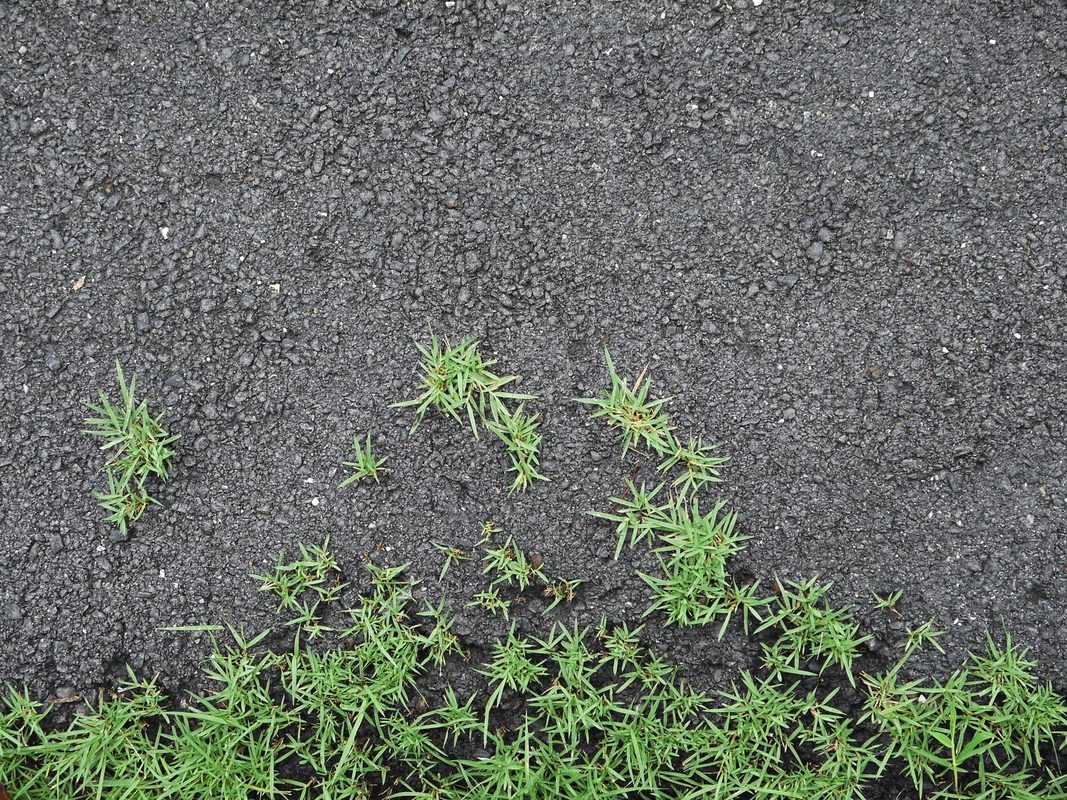
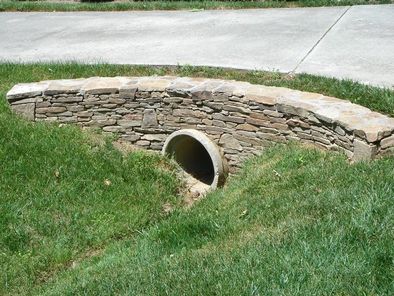



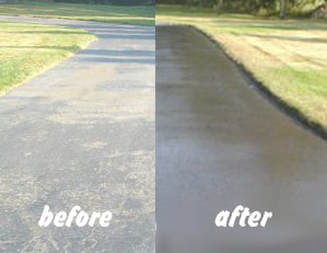
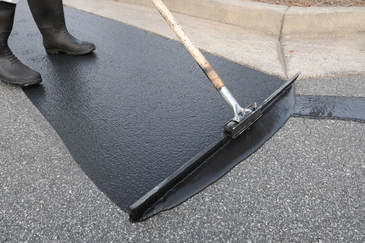
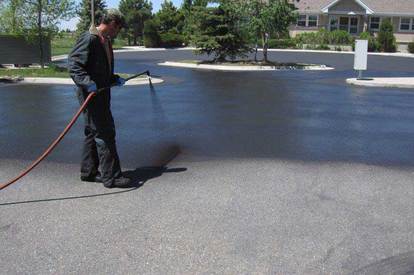
 RSS Feed
RSS Feed
